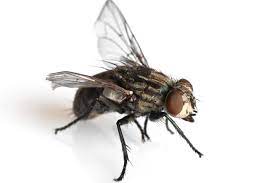The black fly is an insect whose bite is very painful, and every year their numbers increase more and more, especially in urban centres, until it has become a plague in cities like Valencia.
The heat wave recently has caused this insect to reproduce more quickly and the number of eggs increases.
“High temperatures are one of the main factors leading to a peak in the volume of the black fly population,” explains Jorge Galván, director general of the National Association of Environmental Health Companies (ANECPLA).
Another reason that has caused the population growth of the black fly is that there are fewer and fewer bats in the cities.
Sting treatment: black fly, mosquito, wasp, bee or jellyfish
Most cases do not require treatment. However, if there is an exaggerated local reaction, corticosteroid creams or ointments should be applied, and oral antihistamines for itching. If this therapy does not work, treatment with oral corticosteroids should be started.
In the case of the tick, the experts point out that the most important thing is to extract it completely with tweezers: the insect must be grasped between the space between the skin and the mouth to avoid organic remains that may later cause foreign body reactions . Sometimes, ticks can transmit diseases whose treatment is antibiotic and that should only be administered once the clinical and microbiological diagnosis has been confirmed by a specialist.
If the origin is a jellyfish, the first thing is to get rid of the tentacles, for which it helps to submerge the affected area in the sea water. If necessary, the treatment is like that of ticks (you should avoid resorting to vinegar or bicarbonate).
The application of local cold, avoiding direct contact of the ice with the skin, is recommended in all bites to slow the spread of local inflammation except those caused by marine animals, such as jellyfish or spider fish. In these cases, heat is recommended, taking care not to cause burns because there are toxins in these animals that are inhibited at temperatures between 40-45 degrees.
In general, most bites resolve on their own, but it is advisable to seek medical help if the local reactions are very exaggerated and cause a lot of discomfort, when the bite worsens over the days, if areas far from it are affected or there is a feeling of suffocation. Any bite can become reinfected and require antibiotic treatment, always after evaluation by medical personnel.

